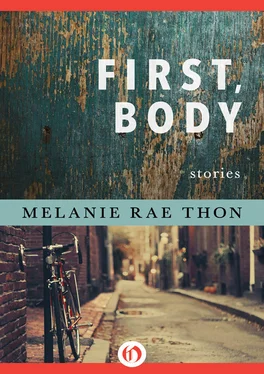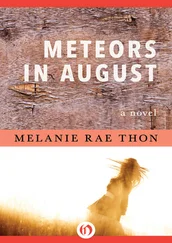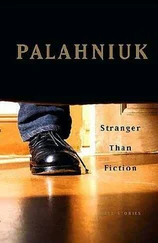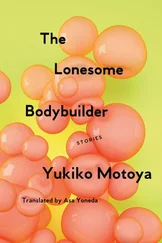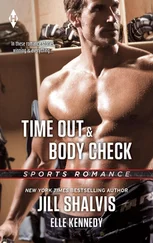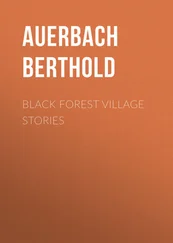If I could find Rita now I’d tell her she was right: junk is better than jazz. It’s fast and it doesn’t hurt you the way the music does. It’s easy. It takes you and you don’t have to do anything. It holds you tighter than you’ve ever been held. You think it loves you. It knows where to lick and when to stop. When it hums in your veins, it says, Don’t worry, I’m with you now .
I’d tell her, The blues scare everybody. They make you remember things that didn’t happen to you, make you feel your bones aren’t yours only — they’ve been splintered a thousand times; the blood has poured out of you your whole life; the rabbitman’s skin is your skin and the body you share is on fire. Or it’s simpler than that, and you’re just your own daddy, or your own mama sitting beside him. Then you wish you didn’t have to feel what they feel, and you get your wish, and you’re nobody but your own self, watching.
Every beat I played was a step closer to my uncle’s house, where I listened to my cousins breathe in the bed above me, where I slept on the floor because Daddy was blind in our house, Daddy’s legs were swollen twice their size and stinking, Daddy was cut loose on his own poison and Mama was there, alone, with him — giving him whiskey, washing him, no matter what he said, no matter who he cursed.
My cousins take me to the woods — Lucy and Louise, one older, one younger. They say, Touch me here, and here . They dare me, they giggle. They touch me and make me forget what’s happening across the field, in my house; then they run away and I hear the grasshoppers chirping all around me, buzzing — frantic, invisible — and then, I remember.
But smack, it makes you forget, it makes you not care, just like Rita said. It promises, There’s nothing more you need to know . So I didn’t have to see my father’s never-clean clothes snapping on the line. I didn’t have to remember Mama bent over the washtub in the yard, flesh of her arm quivering like she wanted to wash out evil as well as filth. I didn’t have to go in the truck with Daddy that morning when he said it was time I saw my future. I didn’t have to swing the sledgehammer with my boy’s arms or see the bull’s eyes, mad with disbelief.
But now I remember everything, how I struck the head but too close to the nose, so there was the crack and blood spouting from the mouth but no crumpling, and Daddy said, Hold the place in your mind . I swung a second time, grazed the face, and the bull swelled with his own breath, filling the stall. Three strikes in all before my father grabbed the hammer: one blow, and the animal folded, knees bending, neck sagging, the whole huge beast collapsing on itself.
Then the others came, sawed off head and legs, slit skin from flesh, peeled the animal — strange fruit — and there was blood, a river of it, hot, and there was blood, swirling at my feet. The body opened and there was blood weeping from the walls and the rabbitman ran so fast he ran out of his own skin and the bowels spilled, an endless rope, thick and heavy, full, and the smell, but the men work in the heat of the animal: kidneys, bladder, balls — saved, and the blood spatters them: faces, hands, thighs; they are soaked with it, I am soaked, I will never be clean, and even the ceiling is dripping until at last the carcass is hung on a hook in the cold room full of bodies without legs or heads or hearts.
But I am washed clean and I do forgive my father and my father dies and my grandparents forgive my mother for her bad marriage. I am fifteen. It’s November, still warm in Virginia but not in Boston, which is where we’re going, on the train, with my grandfather, who is kind enough but doesn’t know us, who won’t come inside our house, who’s brought a suitcase full of clothes we have to wear and shoes that hurt our feet. He and Granny Booker mean to save us, mean to compensate . They say we can be anything. But all I want to be is the music, all I want to hear is the sound. Doctor Booker means I can be like him, and I think about that, the sharp razor’s edge of his scalpel, all his delicate knives. I feel his clamps. I touch speculum and forceps, imagining how precisely he opens the body, what he finds there when he does. I see the familiar brown spatters on shirt cuffs and pants legs, his never-clean clothes, and I think, For all your pride, you’re no better than my father, no different, and the distance from his house to yours is only the space in which a man turns around.
I remember my father crying. It frightened me more than anything, more than the bull, more than the water where I thought I’d drown. And this is all it was: scarecrow on a fence. He must have been going blind even then. He thought it was another one, body tangled in barbed wire. But it was only clothes stuffed with rags, pillowcase head tied off at the neck, straw hat and empty sleeves blowing in hot wind.
In prison I learned that my body itself is the enemy, my skin so black it reflects you. You want to take it from me. I terrify. Even when I am one and you are twenty. Even when I am cuffed and you have clubs. Even when I show you my empty hands and you show me your guns. I alarm you. I do what any animal will do: no matter how many times you strike, I try to stand. I mean to stay alive.
Which is why the girl in the street scared me. I thought, Maybe she’s not a crackhead. Maybe she’s just a woman from the other side, lost in another country, running deeper into it because once you’re here you can’t see your way out. Cross a road, walk under a bridge; that’s how far. No signs, no stone wall, but the line’s as tight as a border crossing. If you close your eyes it glitters like broken glass, pale and blue, a thousand shattered windshields. Here, every gesture is a code. Boys patrol their turf, four square blocks, pretend they own something. They travel in packs and arm themselves because they’re more afraid than any of us, because every time they look up the sky is falling, so they’re rapping about the cops they’re gonna dust, the cities they’re gonna torch. The little brothers are spinning on their heads, like this is some dance, some game — their bodies twist in ways they were never meant to bend, and then everybody in the street just falls down dead.
And the old men like me sit in the bars, drinking whiskey, going numb, talking about snatch and getting even all in the same breath, and we sound just like our own pitiful mamas, saying, Judgment Day gonna come, righteous gonna be raised up, and the wicked gonna suffer, rich or poor, don’t make no difference . Except the men, the justice they’re talking don’t have nothing to do with God. They’re full of the old words, saying, We can’t come in the house we’re gonna knock it down; then they sound just like the boys in the street, only tired and slurred, and the boys out there, they’re quick, they got matches and gasoline, they talk fast as spit and don’t ever need to sleep. But the flames burst at their backs, and they’re the ones on fire.
We know the rules. Mess with white folks, you pay. Kill a white man, you hang. Kill a black man? That’s just one more nigger off the street. So when I think about that girl, when I think, If she’s still out there, she’s in trouble, when I think even my mama would tell me I should go, I remind myself, I already done enough time for a white girl. I know how they are, how she’d be scared of me even if I said, I just want to help you . And I know how it would look in the alley — big black man’s got his hands on a skinny white girl. Just my luck the boyfriend would come looking, shoot me dead. Nobody’d ask him why.
I think, Maybe she’s already dead and I’ll find her, touch her once and leave the perfect print of my hand burned on her thigh. I don’t have a phone, and anyway, too late to call. They’d wanna know Why’d you wait so long ? and I’d be gone.
Читать дальше
